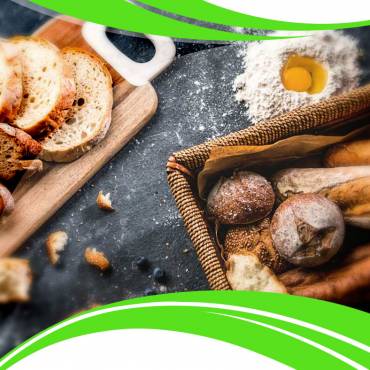Prebiotics
Prebiotics are food that feeds and encourages the beneficial bacteria in our gut. The main prebiotics are called inulin, fructo-oligosaccharides and galacto-oligosaccharides. Prebiotics can be fibres but not all fibres are prebiotics.
Benefits of prebiotics
• “Feeds” and encourages the growth of the beneficial bacteria in our gut
• Their fermentation produces short chain fatty acids which have various functions around our body like keeping our gut lining healthy, improving blood glucose levels and our immune system.
• Increases the absorption of calcium in our gut
• Prevents the growth of the “bad” bacteria in our gut
• May improve symptoms of constipation and diarrhoea
• May improve immunity function
Sources of prebiotics
For many of us, the best way to feed our gut microbiota is by having a varied diet containing a diverse range of plant foods that have naturally occurring prebiotics.
Common sources of prebiotics in common everyday foods
Probiotics
Probiotics is the term used to describe the beneficial “good” bacteria that we want living in our gut. In order for a microbe to be classified as a “probiotic”, it must meet three main criteria
1. The microbes have to be alive
2. They have to be present in an effective dose (large amounts)
3. They have to have evidence of a health benefit
A probiotic is classified into three components:
1. Genus e.g lactobacillus
2. Species e.g Rhamnosus
3. Strain e.g GG
Knowing the strain of the probiotic is essential as the health benefits of a bacterium are strain-specific. For instance, lactobacillus has more than 120 species!! The two most common types of probiotics are lactobacillus species and Bifidobacterium species.
Probiotics are available in a wide range of different forms like capsules, powders or mixed into foods. There are a number of fermented milk drinks like kefir and some yoghurts in which probiotics naturally occur or have been added.
Fermented foods products
Fermentation is the bacterial or yeast conversion of sugar and starch to acids and other by-products like ethanol. Common fermented food products include kombucha, sauerkraut, miso, kimchi and tempeh. In Europe, the European Food Safety Authority (EFSA) has banned the use of the word ‘probiotics’ on food products to prevent companies from misleading consumers and using unapproved health claims. While fermented foods can contain microbes, they may only have fermentative capabilities, and do not necessarily have probiotic functions that confer a health benefit. Some fermented products are processed by heat or filtration to extend shelf life, which kills the beneficial bacteria. Currently, we lack good quality studies showing the benefits of fermented foods, but this does not mean that there are no benefits. It just means we need to do more research into them.
Do I need to take a probiotic supplement?
The evidence at present indicates that if you’re in good health, taking a probiotic is unlikely to have any real benefit. For some individuals with specific gut symptoms or specific health conditions, taking a specific probiotic may be beneficial. The word specific is important because there are many different types of probiotic bacteria that function in distinct ways and have different indications. Essentially, there is no one size fits all approach as not all probiotics will help with all the symptoms or conditions. Before taking a probiotic supplement, speak to a registered dietitian to see if there is any evidence available to support its use in your specific condition.






